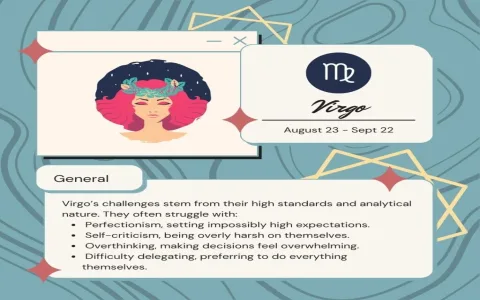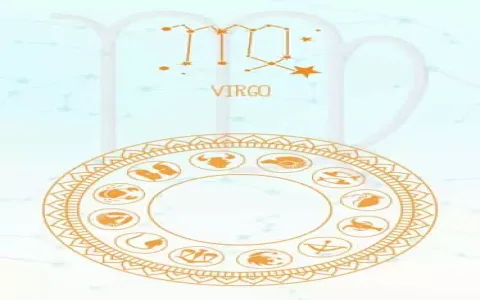Okay, so honestly, I never really thought about my “Virgo traits” causing actual problems until this week. It kinda smacked me right in the face during this big team project rollout. Classic Virgo stuff, you know – needing everything just so, sweating the small stuff.
The Trigger: When “Perfect” Isn’t Actually Helpful
Right? We were putting the final touches on this client presentation. Major deal. Me, being me, I dove deep into the deck. Like, obsessively deep. I started noticing tiny inconsistencies – a spacing issue here, a font size difference there, a graph label that wasn’t perfectly centered. Nothing affecting the actual data or message. Just… cosmetic stuff. But my brain wouldn’t let it go.
I flagged everything. Seriously, probably sent like 20 separate messages to the design lead over two hours, each with a screenshot and a “Hey, just noticed this slight thing…” They were getting swamped, trying to fix actual functional bugs, and my perfectionism bombarded them with visual nitpicks. It wasn’t helping us ship; it was just stressing everyone out, especially me! Later, the design lead gently pulled me aside like, “Dude, appreciate the eagle eye, but we need to lock this down. Can we let the minor alignment stuff slide?” Ouch.
Facing the Critic (In My Own Head)
The “ouch” moment wasn’t about being called out, honestly. It was realizing I’d let my inner Virgo critic run wild. That voice that constantly says, “Not good enough, not precise enough.” Instead of focusing on the big win – getting the project delivered well – I was paralyzed by microscopic flaws nobody else would ever notice. Worse, I was blocking others by demanding they see and fix what only mattered to me.

Later, over coffee (decaf, because Virgo nerves!), I had to ask myself: Is my need for perfection actually serving the goal, or just my own internal compulsion? It hit me that most of those “flaws” weren’t flaws; they were just variations. The world didn’t end because two headers weren’t pixel-perfect.
Okay, So… What Now? Trying Tactics
Knew I had to deal with this trait before it tanked another deadline or relationship. Decided to try a few things actively in the following days, especially during meetings and reviews:
- The “Impact Filter”: Before pointing something out, I forced myself to ask: “Does this actually impact understanding, functionality, or the user experience? Or is this just me being picky?” If it didn’t cross that threshold, I consciously wrote it down just for me and moved on. Didn’t voice it.
- Setting a Nit-Picking Limit: Especially during reviews. I told myself, “Okay, pick one small thing that genuinely does matter (like actual missing info) and one optional visual tweak IF time permits. That’s it.” This kept the feedback focused and valuable.
- “Good Enough” Practice: This felt weird! Like, deliberately leaving emails with slightly off formatting or sending a draft knowing there might be a typo. Intentionally resisting the urge to re-check it again. Small acts to train my brain that “done and functional” is often better than “endlessly tweaked.” Seriously tough at first.
- Acknowledging the Root Fear: Dug a bit deeper. Why the panic? Realized a lot was tied to a fear of being seen as sloppy or unprofessional. Like, if people saw that off-center label, they’d think less of my contribution. Had to challenge that! Nobody judges professionalism based on a graph label margin unless it’s egregious. Most people care about results.
Not Perfect, But Progress
Let’s be real – this isn’t fixed overnight. My fingers still twitch when I see a spacing inconsistency! But awareness was step one. Knowing that my “strong attention to detail” easily slips into “obsessive over-correction” that annoys people and wastes time is crucial.
Trying these tactics consistently is making a difference. Felt way less stressed yesterday during a product review. I caught myself noticing minor things, used my filter, let most go, and only flagged one genuinely important data point omission. Lead dev said, “Great catch, thanks!” Felt productive, not painful.
Being a Virgo doesn’t mean being a slave to the critical voice. It’s about using that analytical power effectively, not letting it bog down me or the team. Learning to harness it, not get crushed by it. Onwards!







